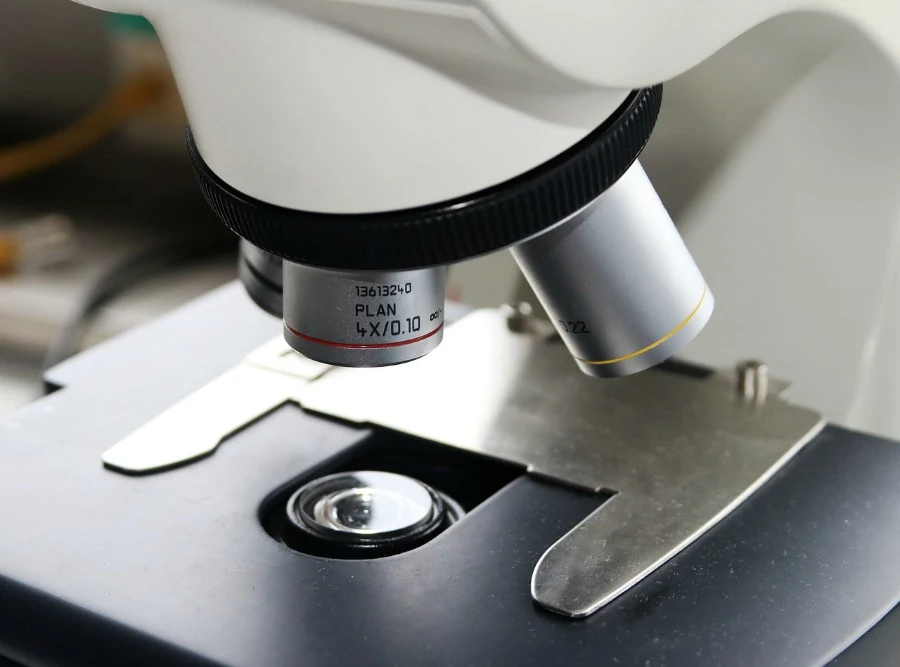Parasitic infection is a health problem that has affected many people across the world. In fact, it has been estimated that half the population of the world has had a certain type of parasitic infection. While the majority of parasites exist in the tropical world and in subtropical climates, the West is no exception.
Parasitic infections not only come from traveling overseas or from eating unclean food, but they can also come from the water that you drink, bathe and swim in. Parasites can get into our skin through the ground, from contact with pets, certain insects, and even from blood transfusions. These nasty creatures are found everywhere and you need to take simple measures to remain protected from them.

What Causes Parasitic Infection
In most countries, parasitic infections come from the consumption of unclean water, by drinking it or by bathing in it. However, there are other sources as well. These include:
Undercooked foods
Undercooked foods are one of the top carriers of parasites. In addition, many parasites live inside feces and are transmitted by workers using unhealthy food handling practices such as not washing hands after the use of a bathroom.
Pork
Well-known for containing parasites, and it should be consumed only when fully cooked to the proper internal temperature.
Fish
Freshwater and saltwater fish like trout, salmon, pike, and cod can carry parasites like tapeworm larvae and roundworm. Therefore, they should be consumed only when properly cooked.
Unclean water
Any water that is swallowed by swimming in rivers, lakes, and ponds can cause a parasitic infection. You need to know which places to avoid when you are traveling and every pond or lake might not be ideal for a swim.
Blood transfusions
In some countries donated blood is not screened for parasites and infections can be transmitted through transfusions. While here in the U.S. blood is screened, in rare cases some parasites can still be transmitted.
Symptoms of Parasitic Infection
The symptoms of a parasitic infection vary depending on the type you have. However, some of the most common symptoms include:
- Anemia
- Adrenal fatigue
- Frequent illness
- Chronic Lyme disease
- Irritable bowel syndrome
- Food cravings
- Eyespots
- Insomnia
- Genital discharge
- Low blood sugar
- Insatiable hunger
- Joint pain
- Allergies
- Memory trouble
- Anxiety
- Stomach ache
- Teeth grinding
- Skin problems
While this list is quite extensive, it is very important to get to the root of the problem and resolve it quickly.
How to Protect Yourself from Common Parasites
A lot of people presume that they can only catch parasites from the consumption of contaminated food and from drinking unclean water. While these are definitely hotbeds for worms and parasites, they can be present in other places too.
Here are some common places that can host parasites, and what you need to do in order to protect yourself from parasitic infection.
Foods
Many everyday foods can potentially contain parasites and bacterias that can make humans ill. However, that doesn’t mean you need to avoid them. With proper cleaning and cooking, the foods will be fine. Some of the most common foods include:
Fruits and vegetables: in order to protect yourself, you should always wash all fruits and vegetable thoroughly. This includes those salad kits that say they are already washed. Also, avoid eating raw veggies at salad bars in restaurants unless you thoroughly trust them.
Pork, beef, and organ meat products: try to source your meats from trusted farms, and always make sure your meat is cooked thoroughly and brought to its recommended internal temperature before eating.
Fish: both freshwater fish and saltwater fish are well-known for carrying parasites. If you must consume them, then make sure they are cleaned and cooked properly. In addition, sushi should only be consumed when it is properly prepared.
Water
While water is necessary for life, it is also another common culprit of parasitic infections, especially in many third world countries. To help protect yourself, you should:
- always wash your hands thoroughly after using the restroom
- wash your hands after handling raw meats and vegetables
- wash your hands after handling feces, including cat litter and dog poop
- drink clean water, including bottled water when you’re traveling.
- avoid swallowing water from lakes, streams, or ponds
Beneficial Foods that Can Help With Parasitic Infections
Nature often provides some of the best help and cures, and the same holds true for when it comes to parasites. These foods are known for helping with parasitic infections. However, always go to a doctor first. Never try to treat any parasitic infection on your own.
Pumpkin skin
Pumpkin skin has been used across different countries to treat stomach infections which include parasites. A study showed that pumpkin seeds can help in treating tapeworm inside humans and it has a high success rate. In addition, they are loaded with various nutrients like fatty acids, magnesium, and zinc. They are also included in parasite cleansing.
Papaya seeds
Papaya seeds are used to treat parasite infection for years and they are highly used in tropical regions. The seeds are anti amoebic and they help deal with intestinal parasites. A lot of parasite cleansing supplements contain papaya seeds.
Berries
Berries are popular due to their immune-boosting antioxidants and natural laxative impact on the gut. Some can even be effective in helping treat a parasitic infection – especially goji berries and gooseberries. Just remember, berries contain sugar, so enjoy them in moderation and always clean them well before eating.
Garlic
Garlic is an ideal anti-parasitic remedy. It can help control fungal infections including Candida and will act directly on parasites like Giardia lamblia. It is advisable to include garlic in food daily.
Parasitic infection can be caused by many different things and can lead to itching, allergic reactions, discomfort, and even serious health problems. However, with a little knowledge and foresight, you can protect yourself from some of the most common ones.
